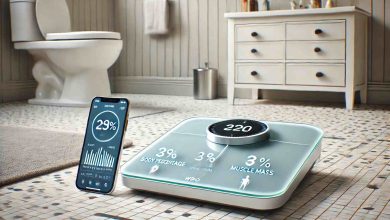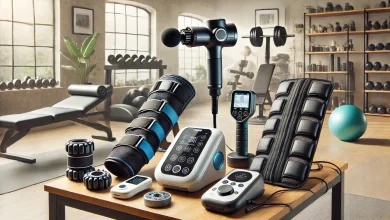Smartwatch vs Fitness Tracker: Choosing the Best Device for Your Health and Lifestyle
Smartwatch vs Fitness Tracker
In today’s tech-driven world, wearables such as smartwatches and fitness trackers have become integral parts of many people’s daily lives. These devices provide convenience, connectivity, and valuable insights into health and fitness. While both smartwatches and fitness trackers are designed to improve your lifestyle, each serves a different purpose, and understanding their differences can help you make an informed decision about which one best suits your needs.
This article will compare smartwatches and fitness trackers, highlighting their features, advantages, and disadvantages, so you can choose the right device to support your health and fitness goals.
What is a Smartwatch?
A smartwatch is a versatile wearable device that does much more than just track fitness. It functions as a miniaturized extension of your smartphone, offering features such as notifications, call and message alerts, app compatibility, and even the ability to make calls or send messages directly from the watch. Most smartwatches come equipped with health and fitness tracking features, but their primary function is to offer seamless connectivity with your smartphone.
Key Features of a Smartwatch:
-
Notifications: Receive calls, text messages, emails, and app alerts.
-
Apps: Compatible with a wide range of apps for fitness, entertainment, productivity, and more.
-
GPS: Provides navigation and location tracking.
-
Voice Control: Features like Siri, Google Assistant, or Alexa for hands-free control.
-
Touchscreen Display: A larger and more interactive screen than most fitness trackers, making it suitable for quick interactions and media viewing.
-
Customization: Smartwatches often allow you to customize watch faces and bands, giving them a more personal touch.
-
Advanced Features: Some smartwatches support additional features such as heart rate monitoring, ECG, blood oxygen levels, and even built-in cellular connectivity.
What is a Fitness Tracker?
A fitness tracker, on the other hand, is a more specialized wearable device focused primarily on health and fitness monitoring. Fitness trackers are designed to monitor your physical activities, such as steps taken, distance traveled, calories burned, heart rate, and sleep patterns. While some modern fitness trackers come with additional features like smart notifications and basic app support, their primary function is centered around health tracking.
Key Features of a Fitness Tracker:
-
Activity Tracking: Tracks steps, distance, calories burned, and activity duration.
-
Heart Rate Monitoring: Monitors your heart rate throughout the day or during exercise.
-
Sleep Tracking: Analyzes your sleep patterns to help you improve the quality of your rest.
-
Sports Modes: Many fitness trackers offer sport-specific modes, such as running, cycling, swimming, and hiking.
-
Battery Life: Fitness trackers tend to have longer battery life than smartwatches, lasting anywhere from several days to a week or more.
-
Water Resistance: Many fitness trackers are water-resistant, making them suitable for swimming or wearing in the shower.
Key Differences Between Smartwatches and Fitness Trackers
Now that we have an understanding of what each device offers, it’s time to look at the key differences between smartwatches and fitness trackers. These differences are important to consider when choosing which device best suits your needs.
1. Primary Purpose
-
Smartwatches are designed to be all-in-one devices that integrate with your smartphone to offer a range of features beyond fitness. Their purpose is to keep you connected, help you stay productive, and monitor your health and fitness.
-
Fitness Trackers focus primarily on tracking your physical activity and health metrics. While some have additional smart features like notifications, they are more specialized for fitness tracking.
2. Design and Comfort
-
Smartwatches tend to have a larger and bulkier design, offering more screen space for interacting with apps and notifications. While many smartwatches are lightweight, they may not be as comfortable for all-day wear, especially if you have a smaller wrist.
-
Fitness Trackers are generally smaller and lighter, with a more discreet design. Many fitness trackers are designed to be worn comfortably all day, including while sleeping, making them ideal for people who want a low-profile device that doesn’t interfere with daily activities.
3. Battery Life
-
Smartwatches usually have a shorter battery life due to their more advanced features and larger displays. Most smartwatches require daily or every-other-day charging, depending on usage.
-
Fitness Trackers, with their more basic displays and fewer advanced features, tend to offer much longer battery life. Some models can last up to a week or more on a single charge, making them perfect for long-term use without the need to recharge frequently.
4. Health and Fitness Features
-
Smartwatches offer a broad range of fitness and health features, such as heart rate monitoring, sleep tracking, step counting, and activity tracking. Higher-end models may also offer advanced health features like ECG monitoring, blood oxygen level tracking, and stress management.
-
Fitness Trackers tend to focus more on fundamental fitness metrics, such as step counting, calories burned, heart rate, and sleep patterns. Some higher-end fitness trackers include additional features like SpO2 sensors and advanced sport modes, but they are generally less comprehensive than those found in smartwatches.
5. Price
-
Smartwatches are typically more expensive than fitness trackers, especially premium models like the Apple Watch, Samsung Galaxy Watch, or Fitbit Sense. The cost reflects the added functionality of the smartwatch, such as app integration, notifications, and cellular connectivity.
-
Fitness Trackers are generally more affordable, with options available for every budget. They offer excellent value if you are primarily looking for a device to track fitness without the extra features found in a smartwatch.
6. App Support and Connectivity
-
Smartwatches offer extensive app support and seamless integration with your smartphone. You can access a variety of apps for productivity, fitness, social media, entertainment, and more. Most smartwatches can also sync with your smartphone’s GPS, music, and contacts.
-
Fitness Trackers have limited app support, focusing mainly on health and fitness apps. While some fitness trackers offer smart notifications, the app ecosystem is generally not as extensive as that of smartwatches.
When to Choose a Smartwatch
A smartwatch is a great choice if you’re looking for an all-in-one device that offers more than just fitness tracking. If you want the ability to receive notifications, manage your calendar, send messages, or use apps directly from your wrist, a smartwatch is the right choice. It’s also ideal for those who want a versatile, stylish accessory that combines technology, fashion, and functionality.
When to Choose a Fitness Tracker
A fitness tracker is perfect for people who are primarily focused on health and fitness and want a device that is designed specifically for those purposes. Fitness trackers are ideal for anyone who wants to monitor their physical activity, heart rate, sleep patterns, and other health metrics without the distractions of a full-featured smartwatch. If battery life is important to you and you want a device that can be worn all day, a fitness tracker is the way to go.
Conclusion: Which One Should You Choose?
Both smartwatches and fitness trackers offer unique features that cater to different needs and preferences. If you want a device that serves as a comprehensive extension of your smartphone and provides advanced health features, a smartwatch is the best option. On the other hand, if your primary focus is on fitness tracking and you want a lightweight, long-lasting device, a fitness tracker is the better choice.
Ultimately, the decision between a smartwatch and a fitness tracker depends on your lifestyle, fitness goals, and how much you value additional smart features. Both devices are excellent tools for enhancing your health and productivity, but it’s important to choose the one that aligns with your personal needs.

